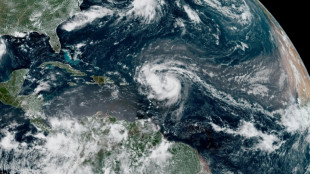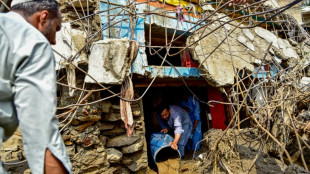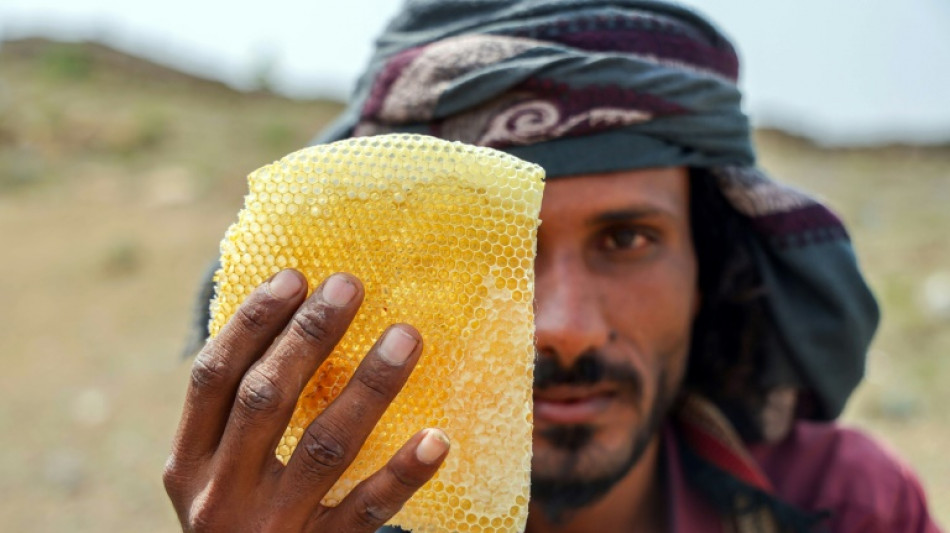
-
 FIFA boss condemns racial abuse in German Cup games
FIFA boss condemns racial abuse in German Cup games
-
Spain and Portugal battle wildfires as death toll mounts
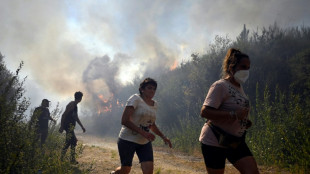
-
 Joao Felix says late Jota 'will forever be part of football history'
Joao Felix says late Jota 'will forever be part of football history'
-
Javelin star Kitaguchi finds new home in small Czech town

-
 Rain halts rescue operation after Pakistan floods kill hundreds
Rain halts rescue operation after Pakistan floods kill hundreds
-
Zelensky says Russia must end war, after Trump pressures Ukraine

-
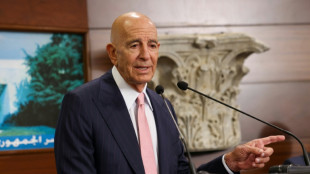 US envoy says Israel's turn to 'comply' as Lebanon moves to disarm Hezbollah
US envoy says Israel's turn to 'comply' as Lebanon moves to disarm Hezbollah
-
Fight to save last forests of the Comoros unites farmers, NGOs

-
 Hong Kong court hears closing arguments in tycoon Jimmy Lai's trial
Hong Kong court hears closing arguments in tycoon Jimmy Lai's trial
-
Five killed in Russian drone attack on Ukraine apartment block
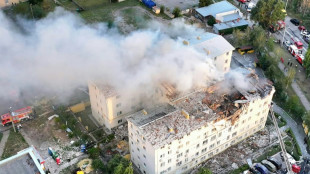
-
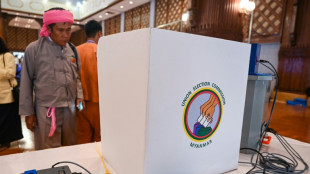 Myanmar junta sets December 28 poll date despite raging civil war
Myanmar junta sets December 28 poll date despite raging civil war
-
German minister says China 'increasingly aggressive'
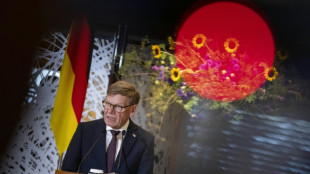
-
 Singapore key exports slip in July as US shipments tumble 42.7 pct
Singapore key exports slip in July as US shipments tumble 42.7 pct
-
German great Mueller has goal ruled out on MLS debut for Vancouver

-
 Zelensky, European leaders head to US for talks on peace deal terms
Zelensky, European leaders head to US for talks on peace deal terms
-
Tourism deal puts one of Egypt's last wild shores at risk
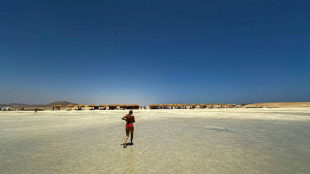
-
 Two right-wing candidates headed to Bolivia presidential run-off
Two right-wing candidates headed to Bolivia presidential run-off
-
Australian court fines Qantas US$59 million for illegal layoffs

-
 Games industry in search of new winning combo at Gamescom 2025
Games industry in search of new winning combo at Gamescom 2025
-
Rooms of their own: women-only communities thrive in China

-
 Social media hit Ilona Maher takes women's rugby onto new plane
Social media hit Ilona Maher takes women's rugby onto new plane
-
Asia stocks up, oil down before Trump-Zelensky talks

-
 Zelensky returns to site of stunning Oval Office shouting match
Zelensky returns to site of stunning Oval Office shouting match
-
Two right-wing candidates headed to Bolivia presidential run-off: projection

-
 How to develop perfect battery systems for complex mobile solutions
How to develop perfect battery systems for complex mobile solutions
-
'Skibidi' and 'tradwife': social media words added to Cambridge dictionary

-
 Akie Iwai joins twin sister Chisato as LPGA winner with Portland Classic triumph
Akie Iwai joins twin sister Chisato as LPGA winner with Portland Classic triumph
-
LIV's DeChambeau joins Henley and English as US Ryder Cup qualifiers

-
 No.1 Scheffler outlasts MacIntyre to win BMW Championship
No.1 Scheffler outlasts MacIntyre to win BMW Championship
-
Swiatek swamps Rybakina, to face Paolini in Cincinnati final

-
 Atletico beaten by Espanyol in La Liga opener
Atletico beaten by Espanyol in La Liga opener
-
PSG get Ligue 1 title defence off to winning start

-
 Rahm edges Niemann for LIV season title as Munoz wins at Indy
Rahm edges Niemann for LIV season title as Munoz wins at Indy
-
Seven killed in latest Ecuador pool hall shooting

-
 Mass rally in Tel Aviv calls for end to Gaza war, hostage deal
Mass rally in Tel Aviv calls for end to Gaza war, hostage deal
-
Terence Stamp: from arthouse icon to blockbuster villain

-
 World No. 3 Swiatek powers past Rybakina into Cincinnati WTA final
World No. 3 Swiatek powers past Rybakina into Cincinnati WTA final
-
Tens of thousands of Israelis protest for end to Gaza war

-
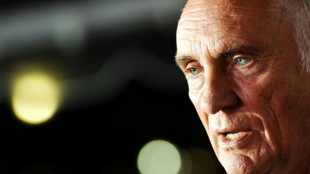 Terence Stamp, 60s icon and Superman villain, dies
Terence Stamp, 60s icon and Superman villain, dies
-
Arsenal battle to beat Man Utd, world champions Chelsea held by Palace

-
 Arsenal capitalise on Bayindir error to beat Man Utd
Arsenal capitalise on Bayindir error to beat Man Utd
-
'Weapons' tops North American box office for 2nd week

-
 Newcastle sign Ramsey from Aston Villa
Newcastle sign Ramsey from Aston Villa
-
Terence Stamp in five films

-
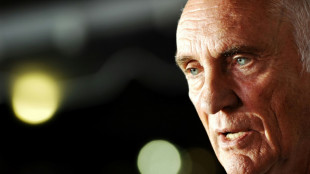 Terence Stamp, Superman villain and 'swinging sixties' icon, dies aged 87: UK media
Terence Stamp, Superman villain and 'swinging sixties' icon, dies aged 87: UK media
-
Chelsea draw blank in Palace stalemate

-
 European leaders to join Zelensky in Trump meeting
European leaders to join Zelensky in Trump meeting
-
Hopes for survivors wane after Pakistan flooding kills hundreds
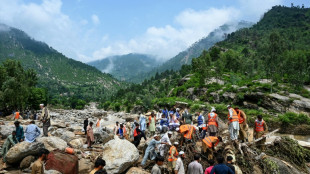
-
 Six in a row for Marc Marquez with victory at Austrian MotoGP
Six in a row for Marc Marquez with victory at Austrian MotoGP
-
Spain PM vows 'climate pact' on visit to fire-hit region


Yemen's ancient honey production a victim of war, climate change
For Yemeni beekeeper Mohammed Saif, honey production used to be a lucrative business but years of war and climate change have taken the buzz out of the family hives.
The business, handed down from father to son, "is slowly disappearing", Saif told AFP. "The bees are being hit by strange phenomenons. Is it due to climate change or the effects of war? We really don't know."
Yemen, one of the world's most impoverished countries, has been gripped by a deadly conflict since 2014, pitting the Iran-backed Huthis against government forces supported by a Saudi-led military coalition.
Hundreds of thousands of people have been killed in fighting or through illness and malnutrition over the past eight years, and the country's infrastructure has been devastated.
But a fragile UN-brokered truce has held since April, bringing some respite to the country and its war-weary population.
In the southwestern region of Taez, Saif recently took stock of his hives in a rugged valley surrounded by mountains.
Before the war, Saif said, the family managed 300 hives, now only 80 are left.
Experts consider Yemeni honey some of the best in the world, including the prized Royal Sidr known for its therapeutic properties.
The United Nations says honey plays a "vital role" in Yemen's economy, with 100,000 households dependent on it for their livelihoods.
- Bee ecosystems battered -
But "enormous losses have been inflicted on the industry since the outbreak of the conflict", the International Committee of the Red Cross said in a report in June.
"Armed conflict and climate change are threatening the continuity of a 3,000-year-old practice," the ICRC said.
"Successive waves of displacement to flee violence, the impact of weapon contamination on production areas, and the growing impact of climate change are pushing thousands of beekeepers into precarity, significantly reducing production."
Saif knows it all too well.
"Last year in our village a missile struck a beekeeper's hives. He lost everything," he said.
"The war has had a very bad impact on us. The fighters have targeted many zones where bees are found," he added.
The ICRC's Bashir Omar said the conflict had limited the ability of beekeepers to freely roam the land whenever flowers were in bloom to collect the honey.
Landmines and active front lines are among the challenges they face.
"To make matters worse, Yemen, like many conflict-affected countries, is disproportionately affected by climate change," the ICRC report noted.
"Temperature rises in recent years, combined with severe alterations caused to the environment, are disturbing the bees' ecosystem which is impacting the pollination process," it said.
"With water tables falling and increased desertification, areas previously engaged in agricultural activities and beekeeping no longer sustain these livelihoods."
The ICRC is providing financial support and training this year to beekeepers, after a similar initiative in 2021 that helped nearly 4,000 of them.
Nabil al-Hakim, who sells Yemen's celebrated yellow nectar in Taez shops, also recalled the golden days before the conflict ravaged his country.
"Before the war we could make a good living by selling honey... but honey has become rare and customers can no longer afford it," he said.
"Before, I used to sell up to 25 five-litre jars a month. Now I can't even sell one."
K.Thomson--BTB

